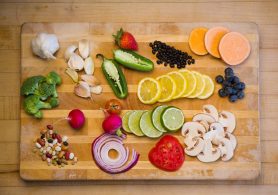- Diseases
- Acoustic Neuroma (14)
- Adrenal Gland Tumor (24)
- Anal Cancer (68)
- Anemia (2)
- Appendix Cancer (16)
- Bile Duct Cancer (26)
- Bladder Cancer (72)
- Brain Metastases (28)
- Brain Tumor (232)
- Breast Cancer (714)
- Breast Implant-Associated Anaplastic Large Cell Lymphoma (2)
- Cancer of Unknown Primary (4)
- Carcinoid Tumor (8)
- Cervical Cancer (158)
- Colon Cancer (166)
- Colorectal Cancer (118)
- Endocrine Tumor (4)
- Esophageal Cancer (44)
- Eye Cancer (36)
- Fallopian Tube Cancer (8)
- Germ Cell Tumor (4)
- Gestational Trophoblastic Disease (2)
- Head and Neck Cancer (12)
- Kidney Cancer (128)
- Leukemia (342)
- Liver Cancer (50)
- Lung Cancer (286)
- Lymphoma (278)
- Mesothelioma (14)
- Metastasis (30)
- Multiple Myeloma (100)
- Myelodysplastic Syndrome (60)
- Myeloproliferative Neoplasm (6)
- Neuroendocrine Tumors (16)
- Oral Cancer (100)
- Ovarian Cancer (172)
- Pancreatic Cancer (160)
- Parathyroid Disease (2)
- Penile Cancer (14)
- Pituitary Tumor (6)
- Prostate Cancer (146)
- Rectal Cancer (58)
- Renal Medullary Carcinoma (6)
- Salivary Gland Cancer (14)
- Sarcoma (238)
- Skin Cancer (296)
- Skull Base Tumors (56)
- Spinal Tumor (12)
- Stomach Cancer (64)
- Testicular Cancer (28)
- Throat Cancer (92)
- Thymoma (6)
- Thyroid Cancer (98)
- Tonsil Cancer (30)
- Uterine Cancer (80)
- Vaginal Cancer (16)
- Vulvar Cancer (20)
- Cancer Topic
- Adolescent and Young Adult Cancer Issues (20)
- Advance Care Planning (10)
- Biostatistics (2)
- Blood Donation (18)
- Bone Health (8)
- COVID-19 (362)
- Cancer Recurrence (120)
- Childhood Cancer Issues (120)
- Clinical Trials (632)
- Complementary Integrative Medicine (22)
- Cytogenetics (2)
- DNA Methylation (4)
- Diagnosis (232)
- Epigenetics (6)
- Fertility (62)
- Follow-up Guidelines (2)
- Health Disparities (14)
- Hereditary Cancer Syndromes (126)
- Immunology (18)
- Li-Fraumeni Syndrome (8)
- Mental Health (116)
- Molecular Diagnostics (8)
- Pain Management (62)
- Palliative Care (8)
- Pathology (10)
- Physical Therapy (18)
- Pregnancy (18)
- Prevention (918)
- Research (392)
- Second Opinion (74)
- Sexuality (16)
- Side Effects (604)
- Sleep Disorders (10)
- Stem Cell Transplantation Cellular Therapy (216)
- Support (402)
- Survivorship (322)
- Symptoms (182)
- Treatment (1786)
Whole Foods or Supplements?
2 minute read | Published March 26, 2012
Medically Reviewed | Last reviewed by an MD Anderson Cancer Center medical professional on March 26, 2012
In the past 50 years, the use of nutritional supplements for the prevention of cancer has increased dramatically in the United States. However, emerging scientific evidence strongly supports the beneficial effects of whole foods for cancer prevention, yet little support from any single nutrient or combinations thereof.
More than 200 recent epidemiological studies indicate that whole nutritionally dense foods, especially fruits, vegetables and high-fiber foods provide more benefits than isolated nutrients in preventing various cancers.
Whole foods contain a wide array of nutrients including vitamins, minerals and a number of other biologically active compounds, collectively known as phytonutrients. These phytonutrients, such as 3,3'-diindolylmethane (DIM) in broccoli or isoprenoids and polyphenols in other vegetables, may work in concert to provide the best support for cancer prevention and control.
For example, fruit and vegetable combined, such as tomato and broccoli extracts or mushroom and green tea, exhibit strong antioxidant and antiproliferative activities in prostate cancer and potential to reduce breast cancer risk compared to that of the individual foods alone. Most recently, using a metabolomics (global study of metabolites) approach, researchers have identified 135 phytochemical compounds (either the compound or their interaction) in tomatoes that could contribute to the chemopreventive effect of tomato sauces, in addition to the existing lycopene.
Phytochemicals present in fruits and vegetables can increase the bioavailability of nutrients and together can target different molecular pathways that regulate inflammation, the immune system, and cancer cell proliferation and metastasis.
Clinical trials
In contrast to the positive impact of whole foods, a number of large cancer prevention clinical trials on nutritional supplements including vitamin E and Beta-carotene for lung cancer (ATBC and CARET trials), Vitamin E, C and Beta-carotene for prostate cancer (PLCO trial), selenium and vitamin E for prostate cancer prevention (SELECT trial), and folic acid and vitamin B for overall cancer prevention (Norwegian Vitamin Trial) did not demonstrate beneficial effect either on the reduction of cancer risk or cancer-related death.
Furthermore, higher concentrations of a single or multi-vitamin could be potentially harmful, such as vitamin A in reducing bone density and increasing hip fracture and vitamin E in hemorrhagic stroke.
Thus, the conclusion drawn from hundreds of studies is that cancer protection must come from a combination of phytonutrients in whole foods that are not in isolated supplements.
A diet that is composed of whole grains, dark green and yellow/orange vegetables and fruits, legumes, tea (green and/or black), and nuts and seeds contains high concentrations of antioxidant phenolics, fibers and phytonutrients, and would work synergistically to offer protection against many types of chronic diseases, including cancer.

